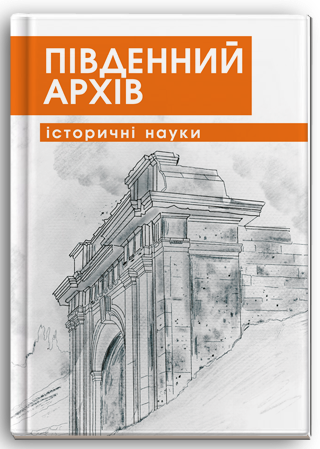THE POLITICAL AND SOCIAL-ECONOMIC PROCESSES IN HUNGARY AFTER THE FIRST WORLD WAR – FROM AUTUMN 1918 TILL 1921
DOI:
https://doi.org/10.32999/ksu2786-5118/2025-51-8Keywords:
Hungary, World War I, state, policy, foreign policy, interwar period, republicAbstract
The article describes the complex political and social-economic transformations that took place in Hungary after the collapse of the Austro-Hungarian Empire as a result of its defeat in the First World War.The aim of the study is to provide a comprehensive analysis of the causes and consequences of political instability, revolutionary changes, foreign policy challenges and the social-economic crisis that engulfed Hungary between autumn 1918 to spring 1921. The focus is on the activities of Count Michael Károlyi’s government, its attempts to preserve the country’s territorial integrity, its search for a democratic system and its response to the challenges posed by the newly formed states of Central-Eastern Europe, as well as its desire to modernize the state apparatus and adapt to the new geopolitical environment. It also analyses the ideological conflicts, social mobilization, cultural shifts and the role of the intelligentsia in revolutionary processes.The relevance of the topic is due to the necessity of rethinking the experience of post-imperial transformations in Central-Eastern Europe, which have many parallels with the current processes of state-building, loss of territories, search for political legitimacy and struggle for international recognition. The understanding of the root causes of the crisis of Hungarian statehood helps to better understand the challenges faced by new or transformed states in post-conflict settings.The methods of the study include historical and comparative analysis, a systematic approach and interdisciplinary methodology, which allowed to trace the impact of external and internal factors on the transformation of Hungarian statehood. The study found that the policy of M. Károlyi’s government, despite progressive reforms (democratisation, land issues, creation of a republic), failed to stop the process of territorial disintegration and a deep political crisis. The absence of a stable army, weak foreign policy influence, revolutionary sentiments in the country, resistance from the old political elite and aggressive policies of neighboring states (Romania, Czechoslovakia, the Kingdom of Serbs, Croats and Slovenians) led to destabilisation. The proposal to create an „Eastern Switzerland” was not supported. Social protests, the growth of radical sentiment, peasant revolts, and the weakness of the administrative apparatus finally undermined the government's legitimacy.Conclusions: The study has shown that despite the sincere desire for democratic reforms, M. Károlyi’s policy failed in the face of external isolation, internal chaos and military vulnerability. The study of this period allows us to better understand the nature of the political crisis, the nature of post-imperial transformations and the formation of modern Hungarian statehood.
References
Balogh S., Gergely J., Izsák L., Jakab S., Pritz P., Romsics I. Magyarország a XX. században. Második kiadás. Budapest: Kossuth Könyvkiadó, 1986. 534 old.
Bölöny J. Magyarország kormányai 1848–2004. Budapest: Akadémiai Kiadó, 2004. 549 old.
Egresi K. Szociálpolitika Magyarországon 1919–1939. Budapest: Napvilág Kiadó, 2008. 372 old.
Galántai J. Trianon és a kisebbségvédelem. Budapest: Maecenas Könyvkiadó, 1989. 228 old.
Hajdu T. Károlyi Mihály. Budapest: Kossuth Könyvkiadó, 1978. 611 old.
Herczegh G. Magyarország külpolitikája 896–1919. Budapest: Kossuth Könyvkiadó, 1987. 385 old.
Juhász Gy. Magyarország külpolitikája 1919–1945. Budapest: Kossuth Könyvkiadó, 1988. 485 old.
Károlyi M. Az új Magyarországért. Válogatott írások és beszédek 1908–1919. Budapest: Magvető Könyvkiadó, 1968. 557 old.
Ormos M. Padovától – Trianonig 1918–1920. Budapest: Kossuth Könyvkiadó, 1984. 450 old.
Ormos M. Magyarország a két világháború korában (1914–1945). Debrecen: Csokonai Kiadó, 1998. 325 old.
Romsics I. Helyünk és sorsunk a Duna-medencében. Budapest: Osiris Kiadó, 1996. 378 old.
Romsics I. Magyarország története a XX. százádban. Budapest: Osiris Kiadó, 2010. 688 old.
Zeidler M. Revíziós gondolat. Budapest: Osiris Kiadó, 2001. 256 old.




